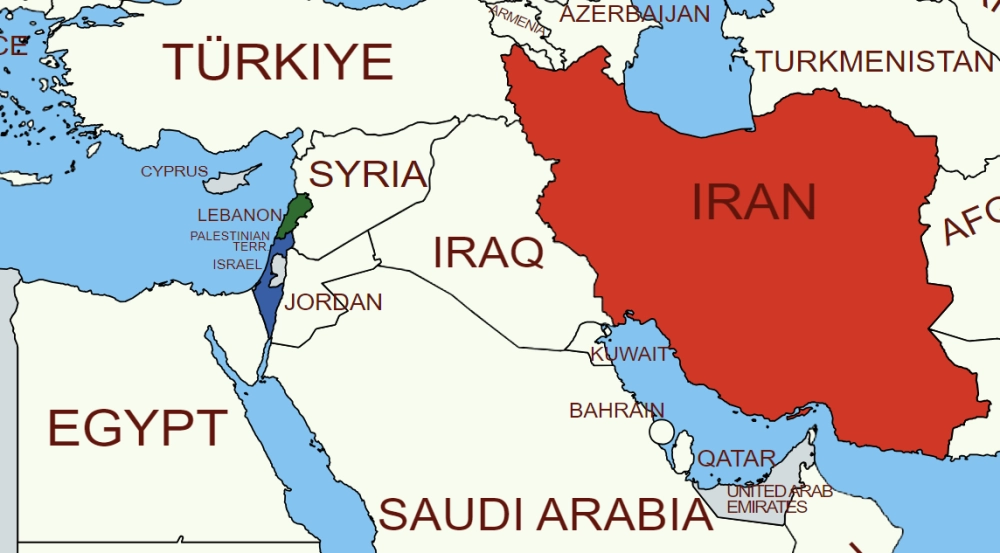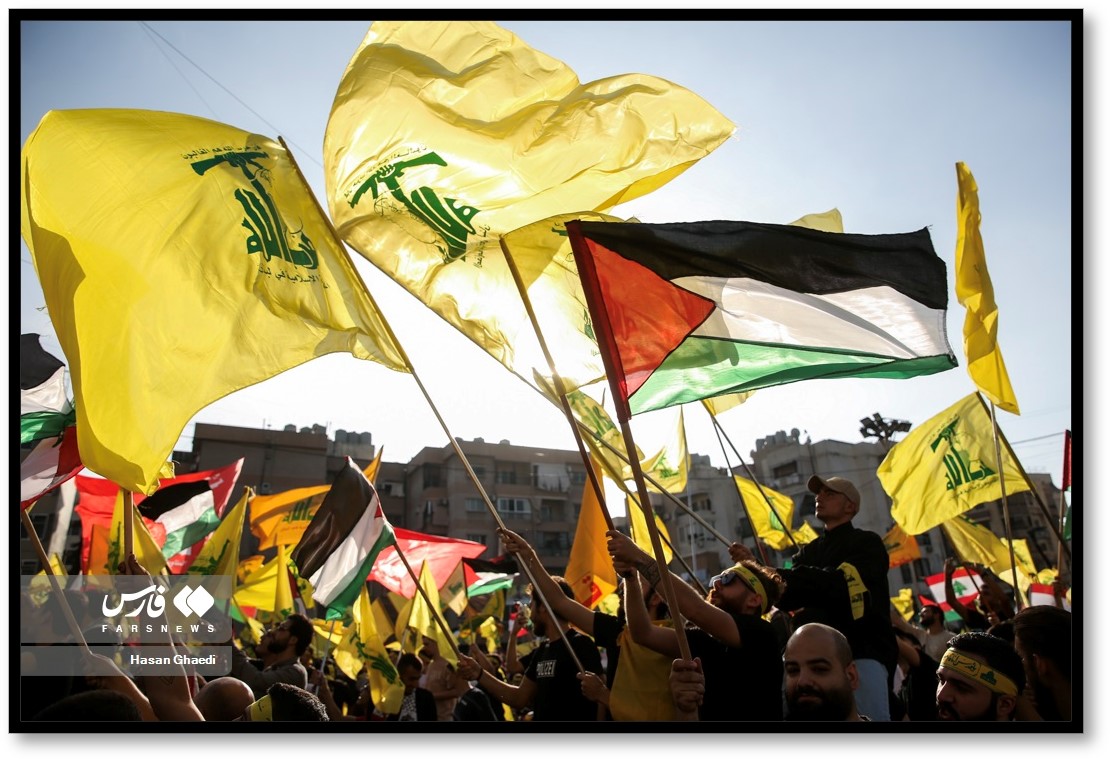In a much-anticipated speech on November 3, Hezbollah leader Hassan Nasrallah heralded the Hamas offensive against Israel and said his Shiite militia was playing a supporting role by targeting Israeli troops along the northern border, thereby dividing Israel’s military forces. “Some say I’m going to announce that we have entered the battle,” Nasrallah said in a nationally televised address. “We already entered the battle on Oct. 8.” He said 57 Hezbollah fighters had been killed in clashes along the 75-mile land border during the first 26 days of the war.
But Nasrallah also said that Hezbollah—the Arab world’s most powerful militia—did not intend to expand the war into a full-scale regional conflict. Hezbollah is keeping its options open, but Nasrallah framed the war as a Palestinian campaign. Hamas had not informed Hezbollah before the war and the two Iranian-backed militias—part of a wider Axis of Resistance—had not planned a joint strategy in advance. “The remarkable and auspicious al Aqsa Flood Operation was entirely a product of Palestinian determination and execution, meticulously concealed from all, including the Gaza-based resistance factions, by its orchestrators,” he claimed. “The operation’s unprecedented success was secured by the absolute secrecy surrounding it, which effectively leveraged the element of surprise.”
The Hezbollah leader, a cleric who also holds powerful sway over Lebanese politics, warned both Israel and the United States that Hezbollah’s military wing would respond more aggressively if attacked. “All scenarios are open on our Lebanese southern front. All options are laid out and we can adopt any at any point in time," he said. The U.S. deployment of two carrier battle groups—including several warships with hundreds of warplanes and missiles—in the Middle East “will not scare us,” he added. “If you want to avoid a regional war, you must end the aggression on Gaza.”
Nasrallah warned that the war in Gaza marked a turning point with “far-reaching implications” that marked “the onset of a new historical phase” for the entire Middle East.

“Regardless of the actions taken by the Israeli government in the past month and the weeks to come, it remains incapable of altering the enduring strategic consequences of the ‘al-Aqsa Flood’ on their entity,” he said.
Hezbollah fought its own war with Israel in 2006, which lasted 34 days and ended in a military stalemate. The Lebanese militia subsequently rebuilt and expanded its arsenal with help from Iran and Syria. Nasrallah predicted that Hamas would also rebuild after the current conflict.
In another speech on November 11, Hezbollah’s annual Martyr Day, Nasrallah boasted about the group’s increasingly advanced weapons. “Over the past week, an escalation took place in terms of the number of operations and the type of the used weapons, seeing as for the first time we have used suicide drones and the Burkan rockets, which are rockets that weigh 300 to 500 kilograms (660 to 1100 pounds) each,” he said. Nasrallah swore that the Lebanese front would remain active. He also called on the United States to stop the Israeli operations in Gaza if it wants to prevent a regional war. The following are key excerpts of his speeches.
On the Gaza war
Nov. 3, 2023: “For nearly two decades, over two million people in Gaza have endured challenging living conditions, with little relief from the international community. The extremist Israeli government’s policies have only compounded the suffering, particularly for the prisoners, resulting in a severe humanitarian crisis.”
“The consequences [of the conflict] have far-reaching implications for the region, marking the onset of a new historical phase.”
“The remarkable and auspicious al-Aqsa Flood Operation was entirely a product of Palestinian determination and execution, meticulously concealed from all, including the Gaza-based resistance factions, by its orchestrators. The operation’s unprecedented success was secured by the absolute secrecy surrounding it, which effectively leveraged the element of surprise.”
“The events of the al Aqsa Flood operation unequivocally demonstrate that Iran exerts no control over the resistance factions, with the true decision-makers being the leaders of the resistance and their dedicated fighters.”
“Regardless of the actions taken by the Israeli government in the past month and the weeks to come, it remains incapable of altering the enduring strategic consequences of the ‘al Aqsa Flood’ on their entity.”
“It’s imperative that we all strive to cease the aggression against Gaza, ensuring the triumph of the resistance.”
“Based on my personal experience and interactions with Imam [Sayyed Ali] Khamenei, I can attest to his unwavering conviction and belief that Gaza will ultimately emerge victorious, and that Palestine will achieve triumph; he conveyed this to us during the initial days of the July aggression.”
Nov. 11, 2023: “Zionist attacks expose the reality of this cruel enemy.”
“The Israeli enemy is ramping up the brutal aggression on Gaza as the resistance fighters are heroically defending their land.”
“The Israeli enemy flagrantly attacks Gaza hospitals and civilian targets before the eyes of the entire world.”
“Despite the Israeli atrocities throughout 75 years, the people of this region have been sticking to the choice of resistance.”
“Time is running out for the Zionist entity as its savagery and cruelty are exposed in front of the international community.”
“When Israel sends elite forces to Gaza then this is a failure. Israel failed to portray itself as the victorious power.”
On regional conflict and the United States
Nov. 3, 2023: “The American administration, along with its president, ministers, and generals, swiftly intervened to support the destabilized entity, aiming to restore some semblance of stability; however, the entity has yet to reclaim the initiative and remains in a precarious state.”
“Even when American generals arrive to assist the entity and open their warehouses for the Israeli army, and ‘Israel’ requests 10 billion dollars from the outset, it raises questions about the entity’s true strength and its ability to regain stability and self-sufficiency.”

“The United States is seen as obstructing efforts to halt the aggression against Gaza and rejecting any proposals for a ceasefire. The Americans are perceived as the orchestrators of the conflict in Gaza; consequently, the decision by the Islamic Resistance in Iraq to target U.S. occupation bases in Iraq and Syria is regarded as a wise and bold move.”
“The Lebanese front effectively diverted a significant portion of the Israeli forces originally intended for an attack on Gaza.”
“Had we maintained a position of mere political solidarity and public demonstrations, the Israelis would have remained unchallenged on the northern border, allowing their forces to be deployed to Gaza. The Lebanese front successfully pulled approximately one-third of the Israeli army to the border with Lebanon.”
“A significant portion of the Zionist forces deployed to the northern front comprises elite units, and nearly half of Israel’s naval capabilities are positioned in the Mediterranean, facing us and Haifa.”
“A quarter of the Israeli air force has been redirected toward Lebanon, and almost half of the missile defense systems are oriented towards the Lebanon front, this has led to the displacement of tens of thousands of settlers in the region.”
“The operations along the border have generated a sense of anxiety, tension, and panic within the Israeli enemy’s leadership, as well as among the Americans. The enemy is deeply concerned about the potential for further escalation on this front or the outbreak of a broader conflict, this is a very real possibility that should not be dismissed and the enemy must take it into serious consideration.”
“Such actions [like an Israeli operation in southern Lebanon] would be the gravest folly in the history of the Israeli existence.”
“We have initiated actions on this front, and its escalation and evolution hinge on two fundamental factors: The first one depends on the unfolding events in Gaza, and second on the conduct of the Zionist enemy towards Lebanon.”
“I caution the Zionist enemy against persisting with actions that have impacted some civilians in Lebanon, as this could lead to the equation where civilians are pitted against one another.”
“All possibilities on our Lebanese front remain open, and every option is being considered and available for implementation at any given moment.”
“It is imperative for us to remain prepared for all potential future scenarios.”
“Our efforts have successfully deterred the enemy, making it clear that any attempt to undermine Lebanon’s sovereignty will be met with strong resistance.”
“In the event of a regional conflict, naval fleets and aerial warfare will prove futile and of no real benefit. In the event of any regional war, it’s important to acknowledge that your interests and soldiers will be the ones to suffer the most and endure the greatest losses.”
Nov. 11, 2023: “If you [the United States] don’t want a regional war then stop the aggression in Gaza.”
“Yemen’s leadership and people took a brave, bold, official and public stance and sent missiles and drones to Palestine. This had important effects, even if was right that the missiles and drones did not reach its targets as the Israelis claim.”
“Attacks by the Iraqi resistance represent high courage in defiance of the US occupation forces stationed in the Arab country.”
“The U.S. has been futilely pressing the resistance in Iraq, Lebanon and Yemen via Western and Arab channels. The only way to halt the Iraqi and Syrian attacks is to stop the war on Gaza.”
“Over the past week, an escalation took place in terms of the number of operations and the type of the used weapons, seeing as for the first time we have used suicide drones and the Burkan rockets, which are rockets that weigh 300 to 500 kilograms each.”
“Drones and Katyushas reached deeper regions inside the occupied territories and this was required by the nature of the battle.”
“Some of them reached Haifa, Acre and Safed and sometimes they would go beyond the north (of Israel).”
“Over the past days, we witnessed a new wave of Israeli threats against Lebanon due to the qualitative and quantitative escalation on this front. The general course on the south Lebanon front is continuing and it will remain a pressing front.”
“On Lebanon’s front, the eyes must remain on the battlefield and not on words.”
“We are in a battle of resilience, patience and accumulation of achievements and points.”
“We’ve informed the Israeli enemy that we won’t be lenient regarding targeting civilians.”
